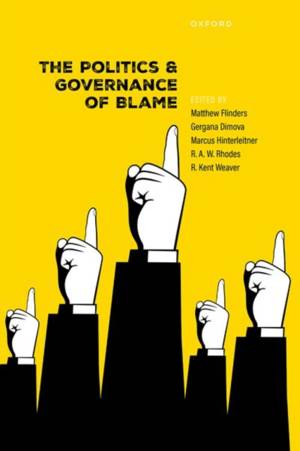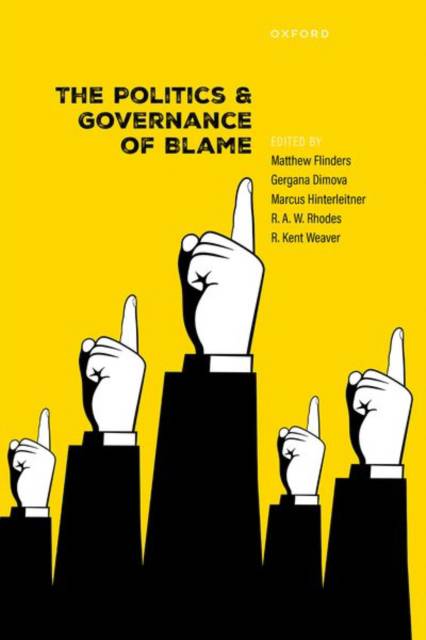
- Retrait gratuit dans votre magasin Club
- 7.000.000 titres dans notre catalogue
- Payer en toute sécurité
- Toujours un magasin près de chez vous
- Retrait gratuit dans votre magasin Club
- 7.000.0000 titres dans notre catalogue
- Payer en toute sécurité
- Toujours un magasin près de chez vous
The Politics and Governance of Blame
Matthew Flinders, Gergana Dimova, Markus Hinterleitner, R A W Rhodes, R Kent Weaver
Livre relié | Anglais
181,95 €
+ 363 points
Description
From coping with Covid-19 through to manging climate change, from Brexit through to the barricading of Congress, from democratic disaffection to populist pressures, from historical injustices to contemporary social inequalities, and from scapegoating through to sacrificial lambs... the common thread linking each of these themes and many more is an emphasis on blame. But how do we know who or what is to blame? How do politicians engage in blame-avoidance strategies? How can blaming backfire or boomerang? Are there situations in which politicians might want to be blamed? What is the relationship between avoiding blame and claiming credit? How do developments in relation to machine learning and algorithmic governance affect blame-based assumptions? By focusing on the politics and governance of blame from a range of disciplines, perspectives, and standpoints this volume engages with all these questions and many more. Distinctive contributions include an emphasis on peacekeeping and public diplomacy, on source-credibility and anthropological explanations, on cultural bias and on expert opinions, on polarisation and (de)politicisation, and on trust and post-truth politics. With contributions from the world's leading scholars and emerging research leaders, this volume not only develops the theoretical, disciplinary, empirical, and normative boundaries of blame-based analyses but it also identifies new research agendas and asks distinctive and original questions about the politics and governance of blame.
Spécifications
Parties prenantes
- Auteur(s) :
- Editeur:
Contenu
- Nombre de pages :
- 800
- Langue:
- Anglais
Caractéristiques
- EAN:
- 9780198896388
- Date de parution :
- 27-09-24
- Format:
- Livre relié
- Format numérique:
- Genaaid
- Dimensions :
- 165 mm x 241 mm
- Poids :
- 1360 g

Les avis
Nous publions uniquement les avis qui respectent les conditions requises. Consultez nos conditions pour les avis.






